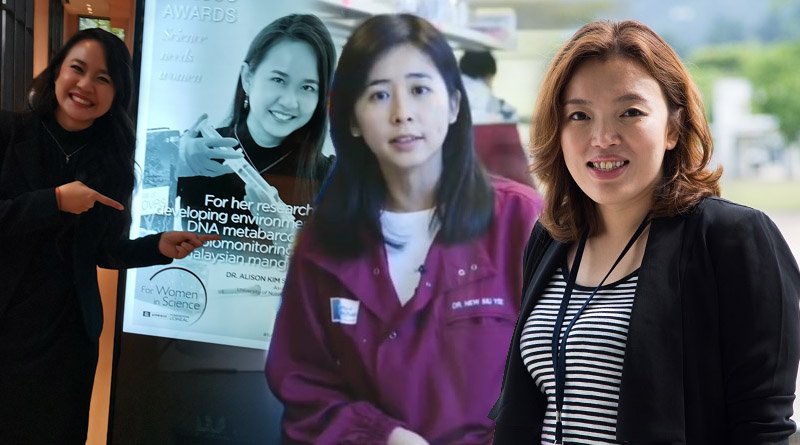Mentorship is reciprocal and takes time to develop, just like any other relationship. It offers a human element that the internet or computers can’t match.

In order to increase the participation and advancement of women and girls in science, especially among the younger generation, mentorships are crucial, according to Dr. Ho Weang Kee.
Shivaani Mariapun (centre), who received the 2019 L’Oréal-UNESCO for Women in Science Award in recognition of her work, credits having a mentor for her success.
In order to foster a culture of empowerment and scientific breakthroughs, mentoring is crucial. Some of Malaysia’s top women in science offer their opinions on mentoring and how it has influenced their success as prize-winning inventors.
“Mentorship is reciprocal and takes time to develop, just like any other relationship. It offers a human element that the internet or computers can’t match.”
The University of Nottingham Malaysia (UNM) School of Mathematical Sciences associate professor Dr. Ho Weang Kee, whose work focuses on developing breast cancer risk assessment tools, says that when you find the right mentor, it’s like meeting friends who click.
“Having a clear idea of where you want your career to go in the future will help you find a good mentor. Next, find role models who can assist you in realising your vision in your area of interest.”
“For me, there is a relationship of mutual trust, and my mentor is committed to helping me develop into a skilled scientist. She serves as an inspiration to me, “shares Shivaani Mariapun, a Ph.D. candidate working under Dr. Ho’s guidance.
Her research focuses on figuring out how mammographic density affects Asian women’s likelihood of developing breast cancer. Mentorees should be sincere and open to opportunities, says Dr. New Siu Yee, an associate professor at the UNM School of Pharmacy.
“The encouragement of their mentors is a powerful source of inspiration for mentees to persevere in the sciences. In addition to connecting us with other potential collaborators, this also entails giving us personal advice and serving as a referee for grant or fellowship applications, “she claims.
Dr. Alison Kim Shan Wee, an assistant professor at the UNM School of Environmental and Geographical Sciences, is a strong believer in the virtues of dependability and perseverance. She emphasises the value of dedication to routine tasks like being on time and being prepared for meetings.
“We must make mentors’ time and effort worthwhile because they are investing personally in helping us. Keep your mind open to learning because every interaction is an opportunity to do so,” she claims.
Communication, self-doubt, and over-dependence were Dr. Wee’s three biggest challenges in mentoring. “I was reserved and conflicted because I am Asian. “With the help of my mentors and through practice, I developed my assertiveness and confidence, which I later applied to my scientific writing and communications.”
She continues, “I am grateful that my mentors encouraged me to establish my own research focus.” “People are remembered for the emotions they evoke in us. I want to be the teacher who’s remembered for making his or her pupils feel valued and cared for,” says Dr. Ho.
